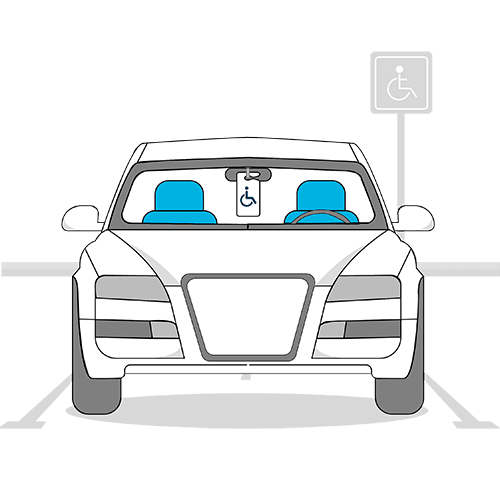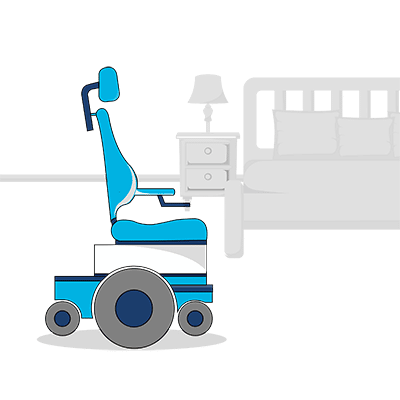Ever had one of those days when your brain feels like it’s wrapped in a thick, mysterious fog? You’re not alone. Many of us have experienced the frustrating sensation known as “brain fog” and wondered what’s going on. Don’t worry, in this blog post we’re covering topics like what is brain fog, what causes it, how long it lasts, how to get rid of brain fog and even if there’s an actual test involved…
In this article…
What does brain fog feel like?
Imagine waking up one morning and your brain feels like it’s covered in a thick, hazy cloud. It’s like you’re trying to think through a dense fog, and your thoughts just don’t seem as clear as usual. That’s brain fog. Doctors refer to it as Cognitive Dysfunction (CD).
Common descriptions of the feeling
Here are some common ways people describe what it feels like:
- Difficulty concentrating: You might find it hard to focus on tasks or conversations. It’s like your mind keeps drifting away, and you can’t hold onto your thoughts.
- Forgetfulness: CD makes you forget things easily, even simple stuff like where put your keys or what you had for breakfast.
- Mental fatigue: It feels like your brain is working overtime, even on simple tasks. You might feel mentally exhausted, even if you haven’t done anything particularly taxing.
- Slow thinking: Your thinking might slow down, making it take longer to process information or make decisions.
- Word finding troubles: You might have trouble finding the right words when you’re talking, or you might mix up words and phrases.
- Feeling disconnected: CD can also make you feel a bit disconnected from the world around you. It’s like you’re watching life happen through a foggy window.

What causes brain fog?
So, what causes brain fog? It can be caused by various factors, and it’s essential to pinpoint the root cause to effectively manage it. Let’s break down some common culprits:
Lack of sleep
One of the most common causes of brain fog is not getting enough sleep. When you’re sleep-deprived, your brain doesn’t function at its best, and you might feel like you’re walking through a mental haze.
Stress and anxiety
High levels of stress and anxiety can fog up your brain. Stress hormones can interfere with cognitive function, making it harder to concentrate and think clearly.
Poor nutrition
What you eat can also affect your brain. A diet high in processed foods, sugar, and unhealthy fats can lead to brain fog.
Dehydration
You don’t need a brain fog test to know that not drinking enough water can leave you feeling fuzzy headed. Make sure you’re sipping water throughout the day to stay hydrated. Herbal teas and infused water can also be delicious options.
Medical conditions
Certain medical conditions like thyroid problems, autoimmune diseases, and chronic fatigue syndrome can cause CD. If you suspect an underlying health issue, it’s crucial to consult a healthcare professional for a proper diagnosis and treatment.
Medications
Some meds, especially those that affect the central nervous system, can have brain fog as a side effect. If you’re experiencing brain fog while taking medication, talk to your doctor. They may be able to adjust your treatment.
Hormonal changes
Hormonal fluctuations during pregnancy, menopause, or as a result of hormonal disorders can also contribute to brain fog. Hormone therapy or lifestyle adjustments can help manage this type of fog.
Lack of physical activity
Regular exercise is not just for your body; it’s for your mind too. Physical activity helps increase blood flow to the brain, improving cognitive function. Try to get moving every day.
In a nutshell, brain fog can result from various factors like sleep deprivation, stress, poor nutrition, and more. But with a bit of self-care and maybe some professional guidance, you can work towards beating it and enjoying a sharp and focused mind.

How long does cognitive dysfunction last?
So, how long does brain fog last? Well, the not-so-fun answer is that it varies from person to person. It’s kind of like asking how long a cold lasts – there’s no one-size-fits-all answer. Because the causes of CD are so diverse, the duration of brain fog can differ widely.
For some people, CD might only last for a few hours, while for others it could persist for weeks or even months. It really depends on what’s causing it and how well you can address those underlying causes.
It’s important to recognise that CD can often be a symptom of invisible disabilities. These are conditions that aren’t immediately obvious to others but can have a significant impact on daily life. If you’d like to learn more about how CD and invisible disabilities intersect, and find practical tips on managing them, feel free to explore our blog posts on invisible disabilities:
- 3 Misconceptions About Parkinson’s Disease
- Dementia and Mobility – What You Need to Know
- World Multiple Sclerosis Day: What is it and Why?
- World Autoimmune Arthritis Day
- Epilepsy Awareness 101
Is there a brain fog test?
There isn’t a specific medical “test” like a blood test or scan that can diagnose brain fog. Instead of a test, diagnosing brain fog involves self-assessment, consulting with a healthcare professional, and possibly undergoing various tests or evaluations to identify any underlying causes. As mentioned earlier, these might be medical conditions, mental health issues, or medication side effects.
Instead of a specific brain fog test, it’s more about recognising the symptoms and addressing the root causes. You’ll likely make these steps:
- Self-assessment: Start by paying attention to your own experiences. Do you often feel mentally cloudy, forgetful, or find it hard to focus? Note down when it happens, what you were doing, and how you felt physically and emotionally.
- Medical consultation: If brain fog persists and affects your daily life, it’s wise to see a healthcare professional. They can help rule out underlying medical issues that might be causing or contributing to your CD.
- Lab tests: Your doctor might recommend some blood tests or other diagnostic procedures to check for conditions like anaemia, thyroid problems, or vitamin deficiencies. These conditions can sometimes lead to brain fog.
- Mental health assessment: Sometimes, CD can be linked to mental health conditions like depression or anxiety. A therapist or psychiatrist can help you explore this possibility and provide guidance on managing it.
- Review of medications: If you’re taking any meds, discuss their potential side effects with your healthcare provider. Some drugs can cause cognitive issues, and they might suggest alternatives if necessary.

How to clear cognitive dysfunction?
The key to effectively combating brain fog is to identify the underlying causes and tailor your strategies accordingly. What works for one person might not work for another, so it’s essential to experiment with these tips and discover what helps you regain your mental clarity and focus…
#1 Mindful breathing and meditation
Practice deep breathing exercises and meditation to calm your mind and reduce stress. This can be especially helpful when brain fog is linked to anxiety or overwhelming thoughts. Basically, these practices can enhance your mental clarity by promoting relaxation and improving focus.
#2 Regular exercise routine
Establishing a consistent exercise routine not only increases blood flow to your brain but also releases neurotransmitters like dopamine and serotonin, which can boost your mood and cognitive function. Aim for at least 30 minutes of most days of the week. If you’re living with physical disability, read our ‘Exercising With Limited Mobility‘ article for more info.
More than half (55%) of Australian adults do not meet physical activity guidelines.
Australian Institute of Health and Welfare and Australian Bureau of Statistics research.
#3 Brain-boosting supplements
Some supplements are believed to support cognitive function. Omega-3 fatty acids (found in fish oil), ginkgo biloba, and vitamins like B-complex and D are often associated with improved brain health. However, it’s essential to consult with a healthcare provider before adding supplements to your diet.
#4 Intermittent fasting and brain health
Some people find that intermittent fasting (IF) can help improve mental clarity. IF involves cycling between periods of eating and fasting. The idea is that it may enhance brain function by promoting the production of brain-derived neurotrophic factor (BDNF), which supports cognitive health. Consult with a healthcare professional before trying IF.
#5 Mindful eating habits
Pay attention to your diet beyond hydration. Incorporate foods rich in antioxidants like blueberries, dark chocolate, and leafy greens. Additionally, foods with a low glycaemic index (GI) can help stabilise blood sugar levels and prevent energy crashes that contribute to CD.

#6 Caffeine in moderation
While moderate caffeine consumption can boost alertness and focus, overdoing it can lead to jitteriness and worsen brain fog. Know your tolerance and consume caffeine mindfully.
#7 Establish a consistent routine
Creating a daily schedule with set times for work, breaks, meals, and relaxation can help your brain operate more efficiently. Predictable routines reduce decision fatigue and free up mental energy, which helps you get rid of brain fog.
#8 Get fresh air and natural light
Spending time outdoors and exposing yourself to natural light can help regulate your circadian rhythms, improve mood, and reset your internal clock. Aim for at least a brief daily dose of fresh air and sunshine to get rid of brain fog.
#9 Brain-training activities
Engage in activities that challenge your brain, such as puzzles, crosswords, or learning a new skill or language, to help you get rid of brain fog. Basically, these mental exercises can help maintain and improve cognitive function.
#10 Stay socially connected
When exploring how to get rid of brain fog, know that loneliness and isolation can contribute to CD. Stay socially connected with friends and family, whether in person or virtually. Social interaction can stimulate your mind and provide emotional support.

#11 Seek professional help
If brain fog persists or is significantly impacting your life, consider seeking guidance from a healthcare provider. They can perform a thorough evaluation, order relevant tests, and offer personalised advice or treatment options based on your specific situation.
Knowing how to get rid of brain fog is just one part of the puzzle if you’re living with disability. We’re here to help you navigate other life challenges with confidence and peace of mind…
Blue Badge Insurance offers disability-specific insurance
As disability specialists, we understand your unique needs and challenges. We offer specialised insurance solutions from wheelchair insurance and mobility scooter insurance to Assistance Dogs insurance.
Plus, regardless of whether your vehicle is converted or not, we offer discounts on disability car insurance if you have a disability parking permit. Why not get a quick quote today?








